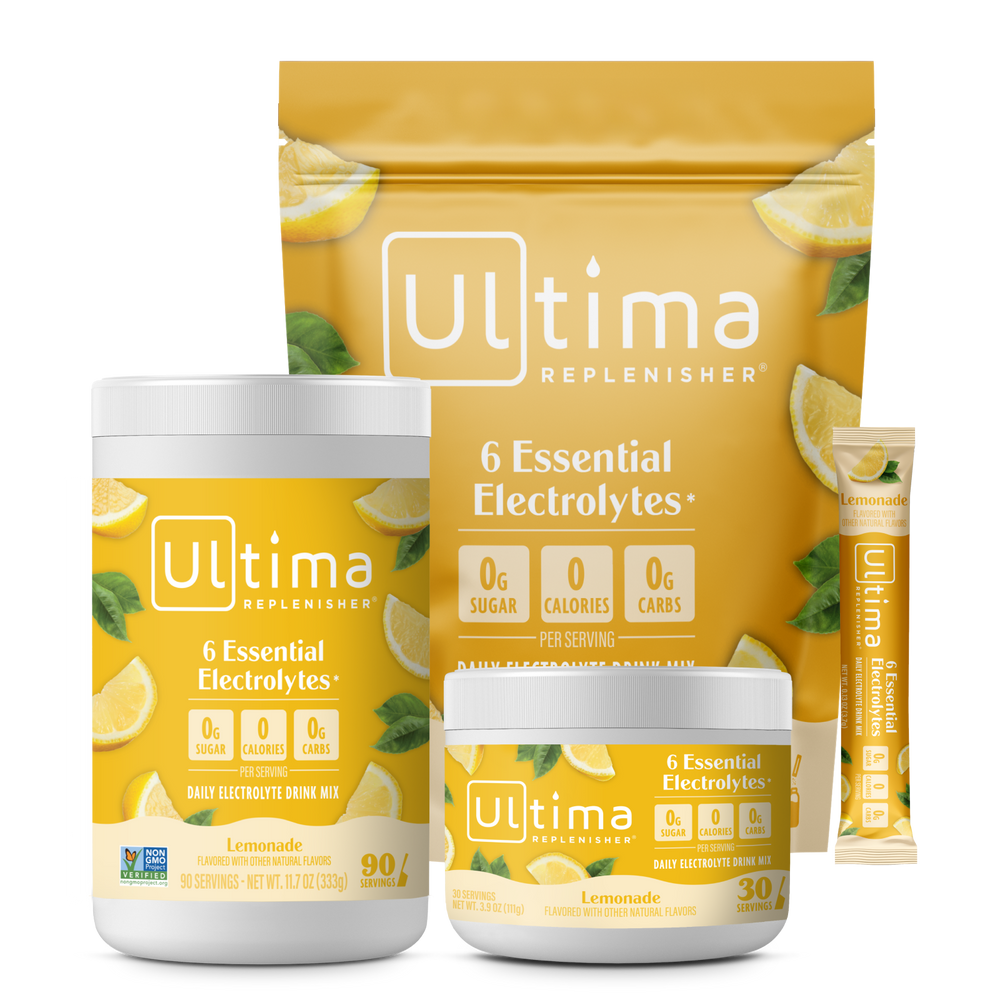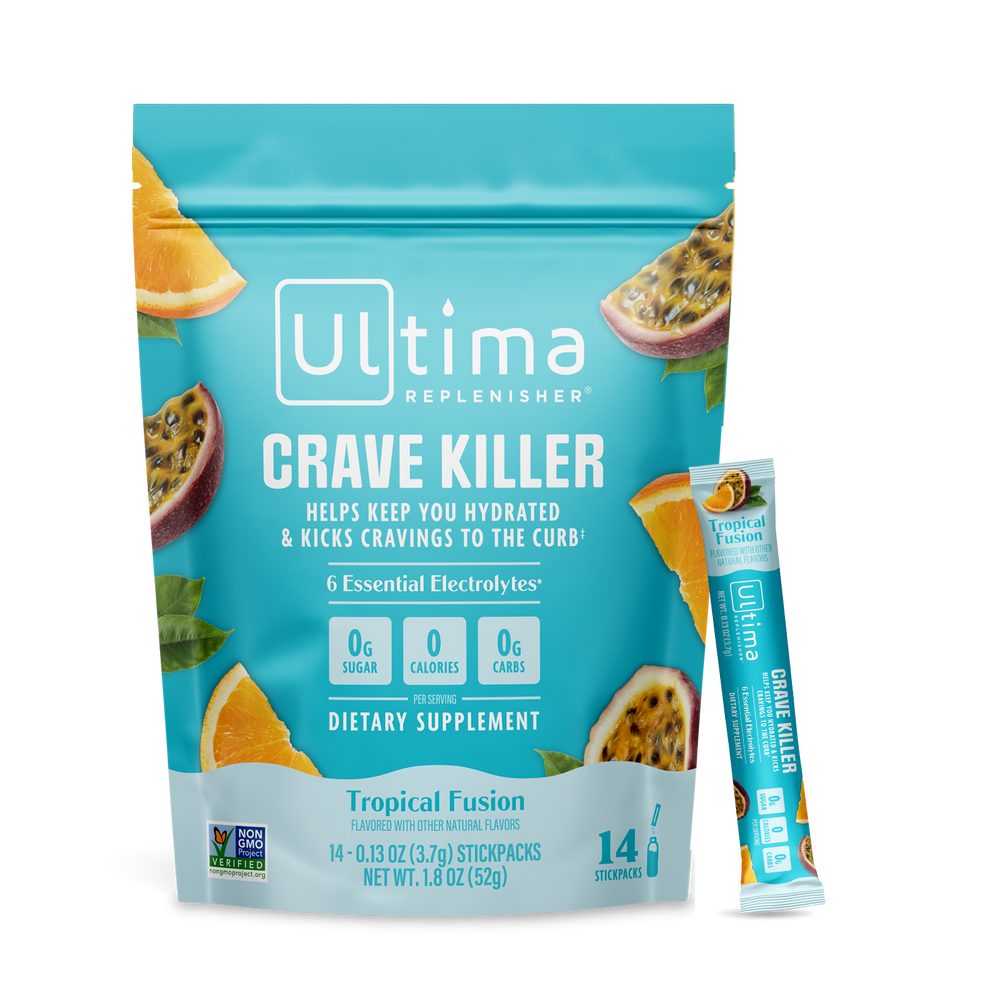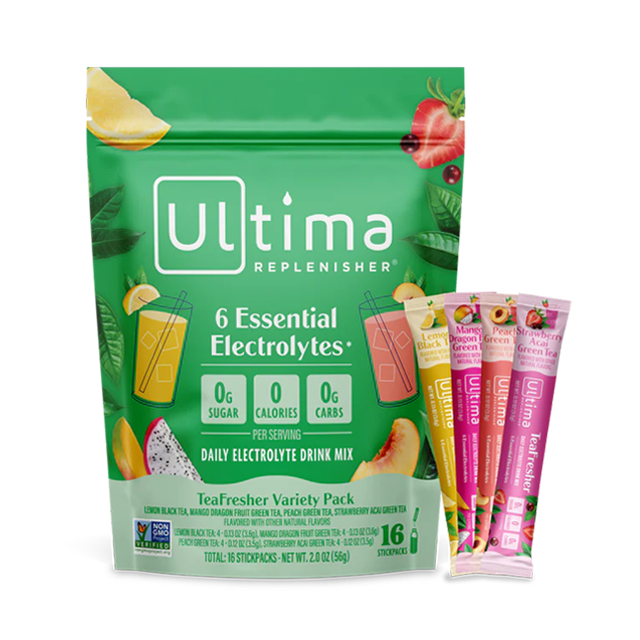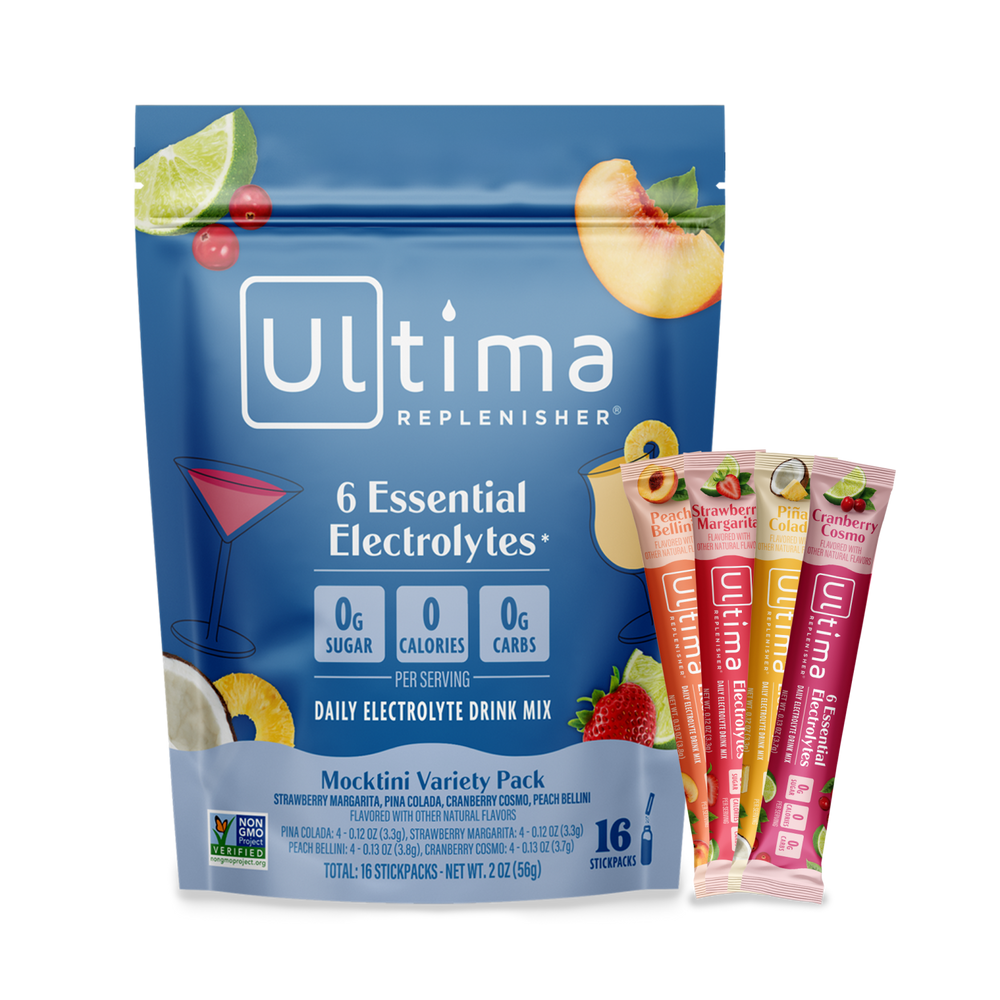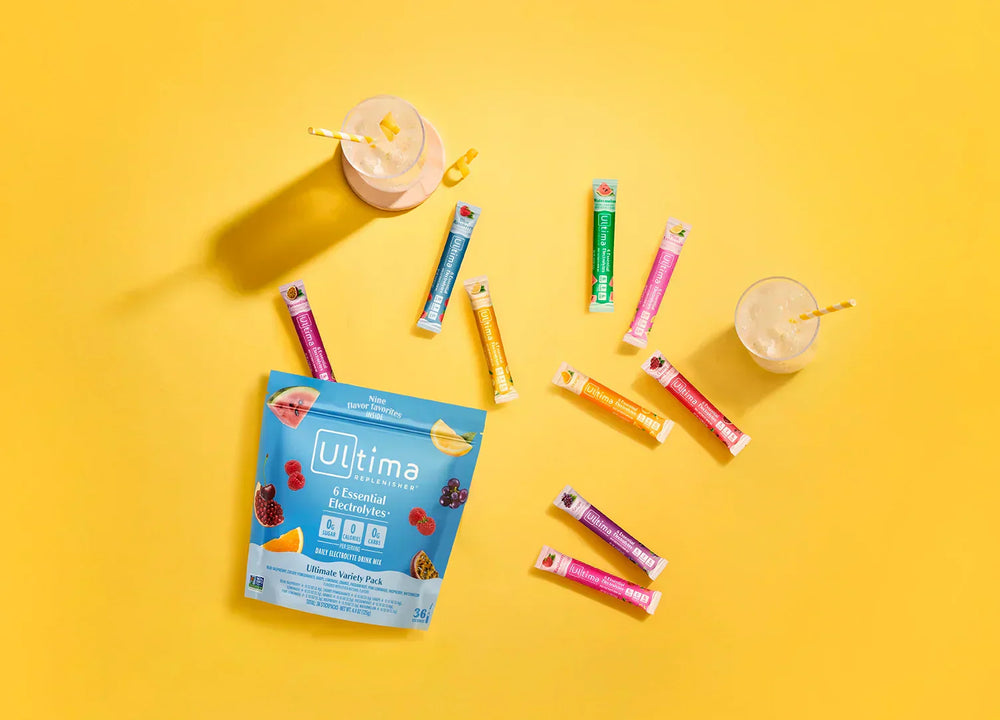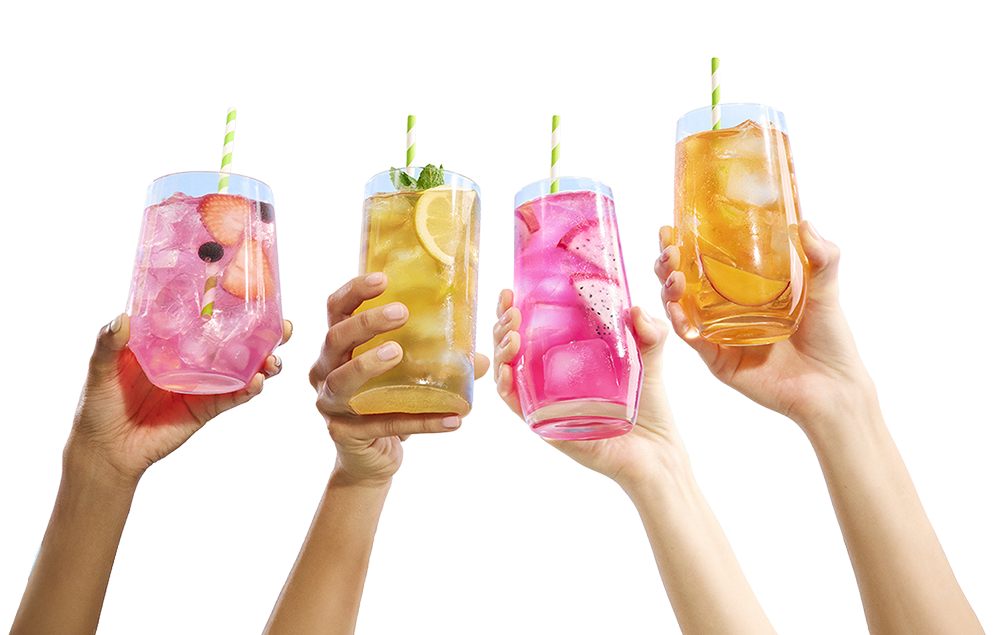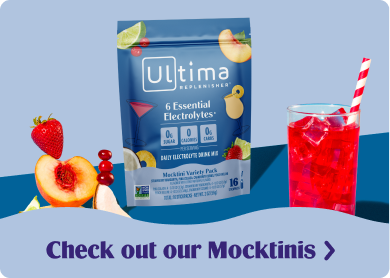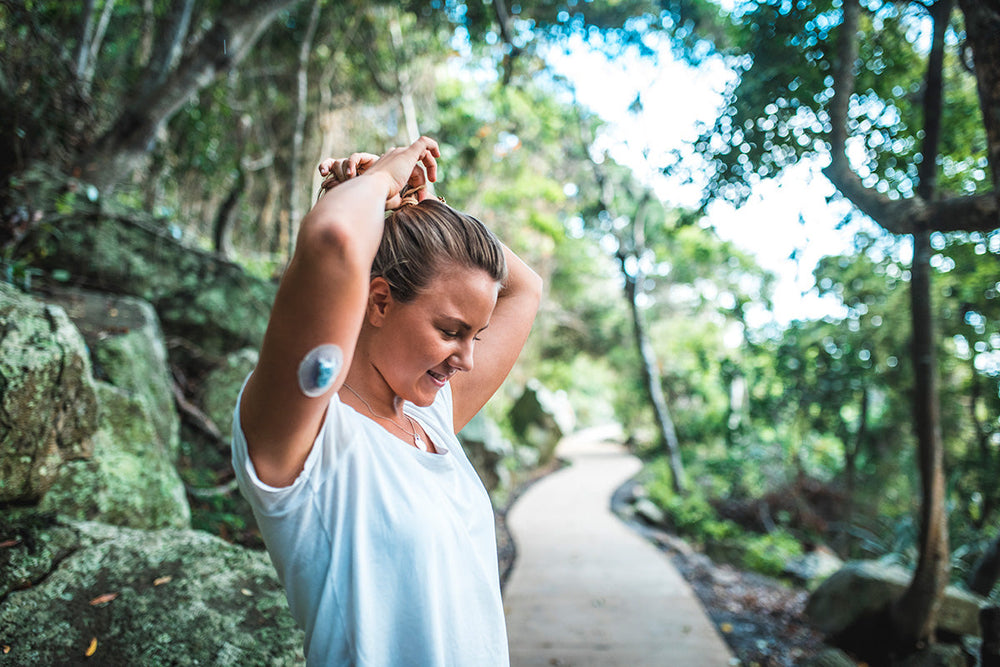
The Electrolyte Advantage: How to Hydrate for Optimal Diabetes Management
With the link between diabetes and dehydration, you’re probably wondering if drinking electrolytes can help with diabetes management. The short answer is yes.
Having a daily hydration routine can certainly help you manage your diabetes and help prevent dehydration, and electrolytes can play a role.
Why Hydrating Is Even More Important for People with Diabetes
When you are dehydrated, there is less water volume in your blood, which leaves a higher concentration of glucose (sugar) in your blood. Having high blood sugar levels can also contribute to dehydration as more water and electrolytes are expelled through the body.
Keeping blood sugar levels under control is the key to managing diabetes. Staying properly hydrated is important because it can help to balance the concentration of glucose in your blood (your blood sugar level) and help your kidneys flush out any excess sugar.
While the general recommendation for daily water or fluid intake for people living with diabetes is about 1.6 liters (L) or 6.5 cups for women; and 2 L or 8.5 glasses per day for men, the American Diabetes Association stresses that each person’s ideal daily fluid intake may be different. It depends on your age, body weight, activity levels, location (in terms of climate), and other medical conditions you have.
It's always a good idea to talk with your doctor or nutritionist about what’s best for you considering your personal health needs.
The Importance of Electrolytes in Hydration
There are many ways to get the fluids you need each day beyond just drinking water. This includes certain foods—such as cucumbers, lettuce, spinach, watermelon, strawberries, bell peppers (especially green) and mushrooms—and supplementing with sugar-free electrolyte drinks.
Electrolytes are vital minerals (sodium, chloride, potassium, calcium, magnesium and phosphorus) your body needs to function properly. In addition to helping you stay hydrated, electrolytes help regulate and enable muscle and nerve function throughout your body, such as muscle contractions and your heartbeat.
When your blood sugar levels are high, your kidneys work harder to flush out that sugar, taking water and electrolytes with it. This can cause an electrolyte imbalance, particularly sodium and potassium. You may first notice this as irritability, headaches or fatigue. If you don’t replenish your fluids and electrolytes, you can become dehydrated, which can spike your blood sugar levels and your blood pressure.
How to Hydrate with Electrolytes for Optimal Diabetes Management
To help prevent dehydration and keep your electrolytes in balance, the easiest step to take is to add electrolytes to your water. Mix it up, so drinking the amount of fluid you need each day is more enjoyable. You can add fresh lemon to water, which is also good for digestion when you start your day this way.
Another easy and delicious option is to keep zero sugar hydration powders on hand. Ultima Replenisher hydration mixes make getting electrolytes simple with individual stickpacks you can take anywhere. You can also choose a 30-serving or 90-serving canister of your favorite flavor—like Lemonade or Cherry Pomegranate to use in one place, like home or work.
With Ultima Replenisher electrolyte drinks, you don’t have to worry about sugar or artificial sweeteners either. The American Diabetes Association cautions against using artificial sweeteners regularly and says “While artificial sweeteners do not raise blood sugar levels noticeably in the minutes and hours after drinking them, there is a great deal of research questioning their overall safety and long-term impacts on your health,” regarding insulin resistance and weight-gain, for example.
Ultima Replenisher hydration powders use organic stevia leaf as a more natural sweetener and use real fruit extracts for delicious flavor, even in our sweet mocktails like Peach Bellini.
What You Should Know about Hot Temperatures and Diabetes
Staying hydrated in hot temperatures or high humidity is even more important, especially if you have complications from type 1 or type 2 diabetes. You may not be able to cool yourself as well through sweating and could overheat more easily.
High temperatures and humidity can also change how your body uses insulin. This means you should test your blood glucose more often in hot weather. You may need to adjust your insulin dose along with your diet and hydration plan. If you exercise or work outdoors in high heat, you should talk to your doctor about the best ways to prevent dehydration and manage your blood sugar levels.
Hydrating with electrolytes through this heat can also give you an added boost to help stave off dehydration. But be sure you’re choosing zero sugar electrolyte drinks. For more ideas and information, check out Eating Well’s list of the best and worst hydration drinks for people with diabetes.
And yes, Ultima Replenisher was listed as one of the best electrolyte drinks for people with diabetes or prediabetes.
Remember This to Stay Ahead
Now that you know drinking electrolytes can help with type 1 and 2 diabetes, don’t wait until you feel thirsty to hydrate. Feeling thirsty means you’re already becoming dehydrated and your blood sugar concentration is elevated. When managing diabetes, you want to stay ahead of blood sugar level changes, and hydrating regularly is an important part of your diabetes management plan.
